In “Mia Madre”, the director Nanni Moretti offers a personal description of the bewilderment caused by the disorder in the world.
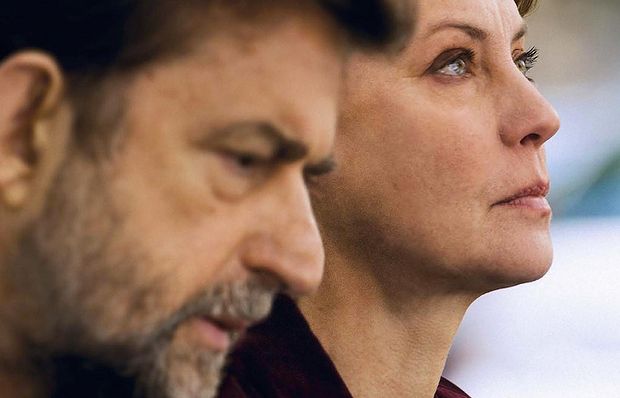 The film won the Ecumencial Jury Prize of the Cannes Festival.
The film won the Ecumencial Jury Prize of the Cannes Festival.
Those of us who have lost our mothers at an early age, live with that feeling of orphanhood that is experienced by the main character in the last film by Nanni Moretti, “Mia madre”. However, it wasn’t until my father passed away that I got that feeling of bewilderment, portrayed with such emotion by Marguerita Buy. This is a story that I cannot talk about objectively. I find it very touching. As in the case of this Italian director, death has given such a perspective to my life that it cannot carry on as before. It shows us, as the Bible says, that we have a problem (Romans 6:23).
Moretti’s mother was ill while he was directing the film “Habemus Papam” (2011). She died during the editing. She was a classics teacher, just like the old lady played by Giulia Lazzarini, who even wears her clothes in hospital, drives her car, and lines the walls of her house with her books. She isn’t called Agata but, like her, she receives the visits of her pupils even after having retired from teaching. It is through those conversations that Moretti realized that there were sides to his mother that he did not know about.
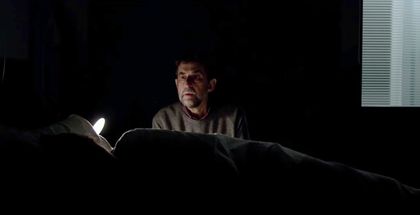 Death shows us that we have a problem, as the Bible tells.
Death shows us that we have a problem, as the Bible tells. In a way, I suppose that our parents always continue being strangers to us at some level. The director said that he had “a very close relationship” with his mother, but as often happens, “wasn’t the kind of son that tells his parents everything”. There are some things that you would never discuss with your parents, and which they will never tell you. Even if families have changed, a father is not a “friend”, however much he appears to be so. Children know that and they do not mistake familiarity with intimacy.
PERSONAL CINEMA
Much is said about “auteur” films, but in Moretti’s case it is impossible to separate his films from his person. I imagine that that is why some find him heavy going while others love him. I am as unconditional with him as I am with his beloved Woody Allen. Moreover, I think that he is the closest thing to that director that European cinema has produced. And as with Woody Allen, you either love him or you hate him. I like all his films; some more than others, but they always seem personal to me. They explore situations that I can identify with.
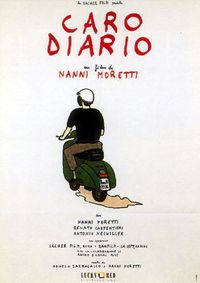 In the early 90s, Moretti created a series of autobiographical series.
In the early 90s, Moretti created a series of autobiographical series. Although he was born in Bolzano in 1953 – his family was spending the summer there –, he spent his childhood in Rome. He belongs to the Italian communist tradition, which entered into a period of crisis in 1968. He talks about this in is first short film, “The Defeat” (1973), always with that sense of humour that can take a step back from itself, without becoming a parody. I discovered him in two surprising films that he directed in the 1980s, “The Mass is Ended” and “Red Wood Pigeon”. In the first, he himself plays a priest that arrives at a parish to try to change things around, but instead ends up in a deep crisis that makes him question everything. The other film reflects his own experience as a water polo player – he played for a team in the Italian first division in the 1970s –, providing a parable about the disintegration of the left wing.
His fame came with “Caro diario” in 1993, a film in a state of grace in which its author is and the main character are mixed up in three episodes that are strongly autobiographical. His tour around Rome riding a Vespa with the music of Keith Jarrett in the background, is one of those magical moments in contemporary cinema. And his visit to the “Doctors” in the last chapter, to be told to drink a glass of water a day, is one of the funniest scenes of hypochondria that I have ever seen. The story of his parents follows a similar vein: they go on an island-hopping holiday but spend the whole time preoccupied by their son, which could not be more representative of a time when children ruled the roost.
A CHRONICLE OF DISENCHANTMENT
The work of the main character in this film is so socially involved that you might think that it had been made at the end of the 1960s or beginning of the 1970s. It is a typically European film. It could be a story by the Belgian brothers Dardenne or the British Trotskyite Ken Loach. It is about the face-off between some workers and the owner of a factory who wants to layoff staff. The role is played by a foreigner, the Italo-American John Turturro, in the style of Jane Fonda in Godard’s Maoist film, “Tout va bien” (1972). His tragi-comic role is again reminiscent of Woody Allen’s films. Humour lives alongside drama, without becoming grotesque, or sentimental. Everything is contained.
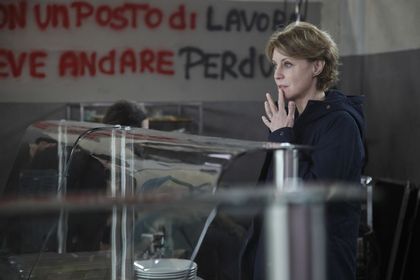 The film shows the disenchantment of the left.
The film shows the disenchantment of the left.In a crucial scene in the film, Marguerita replies to the questions of journalists about her political conscience, while we hear her internal monologue: “I keep saying the same things over and over again, but deep down I feel confused, I don’t understand anything”. It is the surprising conclusion reached by Moretti, after having led large social demonstrations in Rome to get rid of Berlusconi, similar to the 15-M movement in Spain. At the age of 63, he has become disenchanted with everything. He says: “I have very few certainties. All the less so as I get older. It’s not something that I boast about, it’s just the facts”.
This is the bewilderment caused by the disorder of the world. The film’s language will disappoint the idealists out there who keep trying to change the world, but it touches the innermost being of those who are dominated by uncertainty. It is the feeling of inadequacy that the Italian director describes with the word “mancante”. It is as if we are “lacking something”. He says: “we are disconcerted and disconnected, we don’t feel at peace with ourselves”. The leading lady in the film has the difficult task of balancing work and family, leading to a certain disconnect with her teenage daughter, as her relationship ends after her divorce. This all makes her feel that she is losing control of her life.
This all explains the bewilderment caused by the loss of his mother. It is something that makes you feel a certain kind of alienation, a feeling of being outside everything, without being able to identify with the world around you. You look over your life and realize that you have no refuge in your state of obvious fragility. There is no one to defend you. The anguish produced by that mortality is different to the loss of a child – as he depicted in “The Son’s Room” (2001) –. That anguish is “unnatural”, and “unacceptable”, but in both cases, “the main characters are not believers”. Moretti says that, “no believing in a life after death makes both mournings much more difficult”.
ALL IS VANITY
This is the experience of the Preacher in Ecclesiastes who, in the face of the temporary reality of existence, discovers that “all is vanity” (1:2). It is the meaning of the word in Hebrew, not a philosophical concept of existentialism, but a realization of our transience, the fleetingness of life. The Preacher realizes that the efforts you make to change the world are useless. “What is crooked cannot be straightened; what is lacking cannot be counted” (Ecc. 1:15). The diagnosis that the Bible makes of the human condition isn’t pessimistic or optimistic, it is simply realistic, as José Grau said.
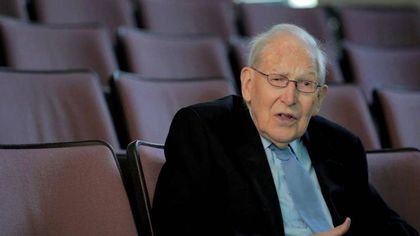 The news of J.I. Packer's retirement came with an article in which he explained how he found the joy to live life in Ecclesiastes.
The news of J.I. Packer's retirement came with an article in which he explained how he found the joy to live life in Ecclesiastes.When I get asked what my favourite book of the Bible is, I never know what to say, just like whenever I’m asked to pick something or someone. I’m indecisive. I find it hard to choose anything. But if I’m really pressed, I would say, along with Packer, Ecclesiastes. When Packer, a towering figure of British origins but who settled in Canada at the age of 89 – as a result of the macular degeneration in his right eye – announced his retirement from writing, conferences, trips and even reading, he also sent out an article about how he found joy in life by reading Ecclesiastes.
I have always been fascinated by this book of the Bible. However, I don’t think I really understood it until I heard Grau’s conference series at a two-week camp for evangelical students in the Pyrenees. He then published the series in a volume that he dedicated to those same university students of the early 1980s. I think that I learnt more in those days in the mountains, hearing him explain scripture or talk about human and divine matters, than in the rest of my life. Along with Packer, I can also say that Ecclesiastes freed me from cynicism.
ENJOY LIFE!
As Grau wrote in one of his books, the first conclusion that Ecclesiastes reaches is that life is to be enjoyed. I think that that was what gave this Catalan thinker such vitality, challenging the pietistic character of an evangelical world that is ever more oppressive. That isn’t the faith that I was brought up in and that isn’t the way I see life. I understand and support the many Christians that are only interested in spiritual matters, but I am not like that. Ecclesiastes taught me to see life differently, “under the sun”.
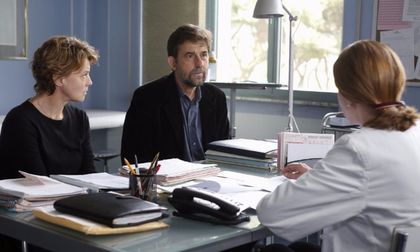 La conciencía de nuestra mortalidad trae una incertidumbre que cambia toda nuestra vida
La conciencía de nuestra mortalidad trae una incertidumbre que cambia toda nuestra vidaTim Keller says that the kind of faith that has its roots in Judeo-Christian thinking, is the most materialistic kind of faith of all. By that he means that compared to the Greek way of thinking and the oriental religions, what it is seeking is not to escape the body or a physical reality, but the life that it receives by means of the bodily resurrection of Christ. In the same way that Christ rose from the dead, we will also be risen (1 Corinthians 15:52). What’s more, together with Peter, we await the day when He will return. He will not only make all things new, but justice will also reign in that new land (1 P. 3:13).
Not only will this world be where God is, making it his permanent dwelling (Apocalypses 21:3) but it will be full of his glory, as the water covers the sea (Habakkuk 2:14). Escaping this world this world is not the solution to our problems, but rather God himself. It is He that we must remember (Ecclesiastes 12:1).
We can be joyful but we have to remember that one day we will have to account for the way we have lived our lives (Ecclesiastes 11:9). That will be the hour of truth (12:14).
As Chesterton says: “A man was meant to be doubtful about himself, but undoubting about the truth; this has been exactly reversed. Nowadays the part of a man that a man does assert is exactly the part he ought not to assert: himself. The part he doubts is exactly the part he ought not to doubt: the Divine Reason.” That is where our certainty should lie, not in ourselves, but in Him.

Las opiniones vertidas por nuestros colaboradores se realizan a nivel personal, pudiendo coincidir o no con la postura de la dirección de Protestante Digital.
Si quieres comentar o